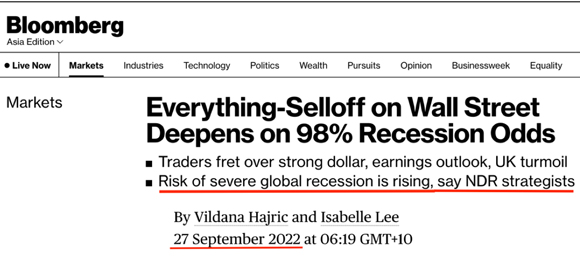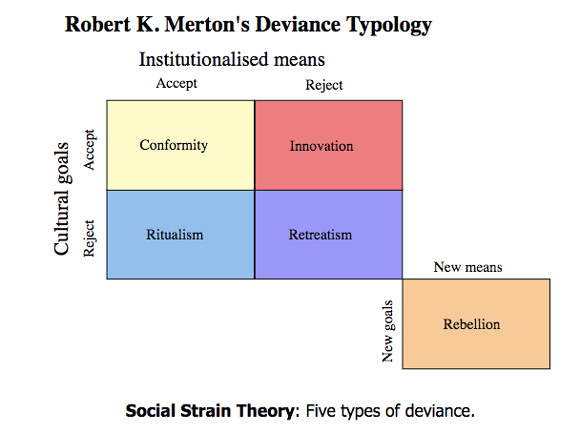‘What’s your dream? Everybody comes here; this is Hollywood, land of dreams. Some dreams come true, some don’t; but keep on dreamin’ — this is Hollywood. Always time to dream, so keep on dreamin’.’
Pretty Woman
What’s your dream?
Is it…
Get a good education.
Get a well-paying job.
Get married.
Borrow to buy a home and a reliable motor vehicle.
Raise, clothe, and feed a healthy, happy, and loving family.
Dinners out.
Travel a little or a lot.
Invest wisely.
Retire happy.
Whether you buy into the whole dream or just select bits of it, the dream is what drives economic progress.
Each and every part of the dream is a link to a commercial transaction.
Schooling. Employment. Real Estate. Banking. Medical. Transportation. Superannuation. Retail. Hospitality…and more.
Every link in the dream creates a chain of economic activity…and employment opportunities.
Hollywood might be considered the land of dreams, but, in reality, it is one tiny tract. The real land of dreams has been the developed and developing worlds.
People living hand to mouth in impoverished nations do not have these dreams. They are preoccupied with survival. In their world, there is no chain of economic activity…which is reflected in the low and stagnant GDP numbers of third-world countries.
Is the dream being crushed by the burden of three mountains?
Generation after generation has bought into a version of the ‘Dream’.
The ideal of parents wanting better for their children has been passed down…keeping the dream alive.
But what if one generation decides to break the chain? What if our cherished dream is not their vision of the future?
Impossible?
Why wouldn’t anyone want to hop on the spinning hamster wheel and pursue a lifestyle of never-ending growth?
Channel News Asia’s Insight program looked at how the philosophy of ‘Tang Ping’ (lying flat) has now migrated to a new and more worrying trend of ‘Bai lan’ (let it rot)…a term derived from basketball, where teams would voluntarily retreat in the face of a losing battle.
Why do some Chinese youths feel life is a losing battle?
The programme interviewed Alfred Wu, an associate professor at the Lee Kuan Yew School of Public Policy (emphasis added):
‘[Wu] attributes it to the “burden of the three mountains” — education, healthcare and housing.
‘Property inflation has pushed home prices so high that “(workers’) salary will not enable them to afford an apartment”…
‘China’s ageing population also means healthcare costs are set to go up. “Many people are worried about whether they can get enough support when they are older…So they need to have a lot of money for the future,”…
‘For those who have children, private tuition has almost become a necessity in order to stand out in an over-competitive job market. Fees can be as exorbitant as S$200 an hour, or up to S$1,000 for a star tutor…
‘“It’s unbelievable for people who are not earning a decent salary,” Wu said…
‘As it stands, there are also too many graduates in China and not enough jobs to match. Their skills may also be insufficient for the fast-changing market.
‘“They are university graduates…people who have a PhD…but when they enter the job market, they need to pick up very humble jobs,”…People are competing for a slice of the pie that is “way too small”.’
Expensive housing.
An ageing population and rising health care costs.
University graduates doing menial jobs.
The ‘burden of the three mountains’ is not being carried by China alone.
As reported by CNN:
‘This type of phenomenon, though, isn’t limited to China.
‘Across East Asia, young people say they’ve become exhausted by the prospect of working hard for seemingly little reward.
‘In South Korea, young people are giving up on marriage and home ownership.
‘In Japan, they are so pessimistic about the country’s future that they are eschewing material possessions.
‘“Young people are very burnt out,” said Lim Woon-taek, a professor of sociology at Keimyung University in South Korea. “They don’t know why they have to work so hard.”
‘As more young people grow frustrated with relentless pressure, they say they want to — and in some cases are — giving up conventional rites of passage, such as getting married or having children.’
Could the rejection of the ‘dream’ be the thin edge of the wedge?
What if we are facing a severe global recession…one far worse than the GFC?
|
|
| Source: Bloomberg |
Should this eventuate, might we see a silent rebellion…enough people at the margin decide to get off the hamster wheel and leave it to us ageing boomers and the older members of Gen X to keep it spinning?
If so, the base of our debt-funded economic growth Ponzi scheme gets a whole lot smaller.
That has real-world implications…especially for pension plans built on the ‘Dream’ being kept alive in perpetuity.
In my book, The End of Australia, I devote an entire part to exploring the prospect of ‘Shattered Dreams. Social Strain’.
Recent reports from Asia suggest this prospect merits serious consideration.
Here’s a brief extract from The End of Australia:
Shattered Dreams. Social Strain
‘PART THREE
‘Shattered Dreams. Social Strain
‘We’ve all heard it.
‘Politicians love talking about it.
‘“The Great Australian Dream”.
‘But what is it?
‘In broad terms, Wikipedia defines it as: “a belief that in Australia, home-ownership can lead to a better life and is an expression of success and security.”
‘Over the generations, the collective belief in the dream has driven our economic progress.
‘The dream is not unique to our island nation.
‘In his 1931 book, The Epic of America, James Truslow Adams wrote (emphasis added)…
“The American Dream is that dream of a land in which life should be better and richer and fuller for everyone, with opportunity for each according to ability or achievement…it is not a dream of motor cars and high wages merely, but a dream of social order in which each man and each woman shall be able to attain to the fullest stature of which they are innately capable, and be recognized by others for what they are, regardless of the fortuitous circumstances of birth or position.”
‘For some, the dream becomes a reality.
‘For others, due to circumstances beyond their control, it doesn’t.
‘What happens when the land is not “better and richer and fuller for everyone”, or people do not attain “the fullest stature of which they are innately capable”?
‘When The Epic of America was published, America was in the grip of the Great Depression.
‘For those whose dream turned into a nightmare, life became a matter of survival…by any means possible. According to USHistory.org:
“The Great Depression brought a rapid rise in the crime rate as many unemployed workers resorted to petty theft to put food on the table. Suicide rates rose, as did reported cases of malnutrition. Prostitution was on the rise as desperate women sought ways to pay the bills.”
‘Seven years after James Truslow Adams gave us his definition of “The American Dream”, American sociologist Robert K. Merton developed the “Social strain theory”. The following excerpt is from Wikipedia…
“Strain theory is a sociology and criminology theory developed in 1938 by Robert K. Merton. The theory states that society puts pressure on individuals to achieve socially accepted goals (such as the American dream), though they lack the means. This leads to strain which may lead individuals to commit crimes, like selling drugs or becoming involved in prostitution as a means to gain financial security.”
‘The theory was developed after Merton completed a comprehensive study of US crime statistics.
‘Merton’s theory puts members of society into five categories.
|
|
| Source: Social Science |
‘Cultural goals (vertical axis) is “the Great American Dream”. People accept the dream or reject the dream.
‘Institutionalised means (horizontal axis) is the traditional way to realise the dream. Hard work, gainful employment and/or pursuing worthwhile endeavours to provide the means to make the dream a reality.
‘Once again, people have choice. They can accept or reject the traditional approach to making a dollar.
‘Merton’s neatly boxed model is a “black and white” view of the world. There are no shades of grey. Therefore, we have to recognise it as a generalisation of characteristics.
‘With that limitation noted, here’s how we can identify which box we fit into.
‘Conformity: You accept the notion of the dream — a life that’s better, richer and fuller — and pursue traditional (institutionalised) methods to help you create that reality.
‘Innovation: You buy into the dream of a better life, but resort to illegitimate (innovative) means (drug dealing, embezzlement, theft, etc.) to attain the goal.
‘Ritualism: You don’t buy the dream, but engage in the traditional ways to earn a dollar.
‘Retreatism: You don’t buy the dream and you don’t want to be gainfully employed.
‘My educated guess is that the majority of us fit into the “Conformity” box.
‘This is why our society — on balance — functions in a relatively ordered fashion and our economy continues to evolve.
‘However, with the prospect of another serious economic disruption in our future, we could see a migratory trend out of the “Conformity” box.
‘Where might some people — in greater numbers — migrate to?
‘My guess?
‘The fifth box…Rebellion.
‘According to Social Science, those who take flight to the Rebellion box are “a special case wherein the individual rejects both the cultural goals and traditional means of achieving them but actively attempts to replace both elements of the society with different goals and means”.
‘There are indications that the groundwork for this shift is already being laid. People just haven’t reached the tipping point…yet.’
UK currency crisis. European energy crisis. China’s faltering property market. Wall Street’s serious case of the wobbles. High yield bonds in a world of hurt.
The easy money, lazy growth decade is over.
We’re now being confronted with the ‘there are no good’ consequences from this period of unbridled excess.
Who could blame a good percentage of youth from the developed and developing world for not wanting to be part of a system run by incompetent fools?
And, if enough of them do opt for Rebellion, the dreams of those in the Conformity box are going to be turned upside down.
This is a time to exercise caution and keep a close watch on social mood.
Regards,
 |
Vern Gowdie,
Editor, The Daily Reckoning Australia



